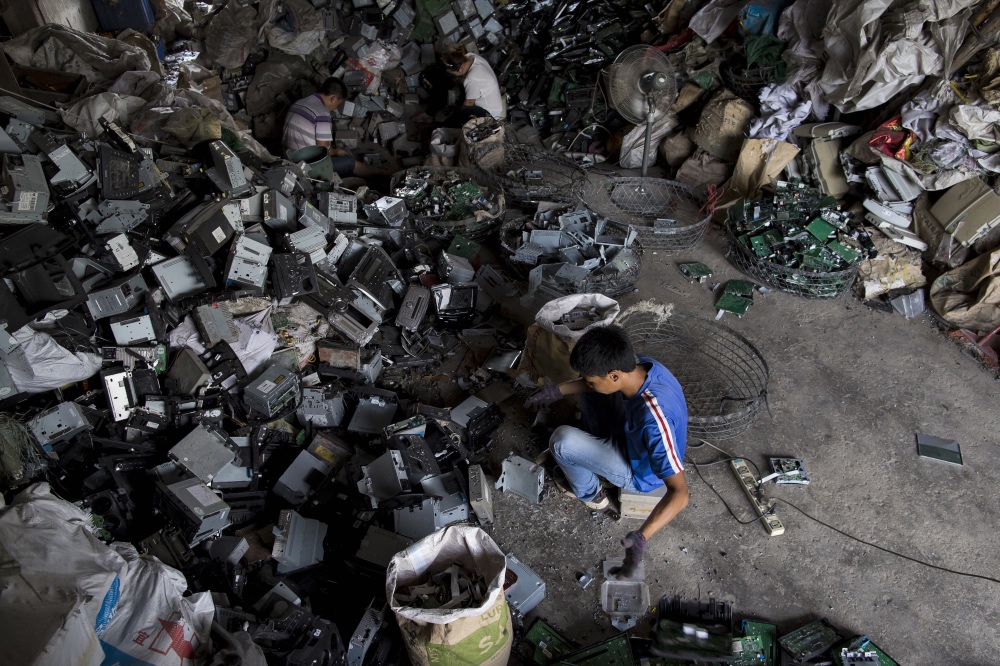London
Thomson Reuters Foundation
From medical waste washing onto the beach at Pakistan to man-made debris orbiting the earth, the scale of waste – and the strange shape it can take – is a growing global concern.
Without urgent action, the world’s waste will increase by 70 per cent by 2050, according to a 2018 report from the World Bank.

Workers recycle CD players at a workshop in the township of Guiyu in China’s southern Guangdong province on 9th June, 2015. PICTURE: Reuters/Tyrone Siu
Below are seven types of weird waste found around the world:
1. Blood on the beach
Medical waste such as syringes and vials of blood was found strewn across Clifton Beach, one of the most famous beaches in the Pakistani city of Karachi, on Monday. The medical dump prompted calls for police to shut down the beach until it was clean and safe, and to find the culprits.
2. Space junk
Space debris, including broken satellites orbiting the earth, poses a threat to other spacecraft, according to NASA, which tracks more than half a million pieces of moving debris. Scientists worry that small space fragments combining with large intact objects will cause ‘Kessler syndrome’ that would make space junk too dense to clear.
3. E-graveyards
From Ghana to China to India, tons of electronic waste such as old computers are dumped in e-waste graveyards. The metals hold strong value, but extraction – and disposal of associated plastics by burning – can harm health and the environment.
4. Nike island
Nike footwear has washed onto shorelines all over the world, including reports last year that 60 Nike shoes were found on remote Flores Island in the Atlantic. According to research, the shoes may have come from 70-plus containers that fell off a single ship. The World Shipping Council estimates that of the 218 million containers shipped worldwide each year, more than 1,500 fall overboard.
5. Fireworks at sea
Nearly 2,000 kilograms of plastic firework debris was removed from a 42 kilometres stretch of beach in Washington state on the US west coast in July, according to the Ocean Blue Project. Scientists and environmentalists say chemicals from fireworks can pollute drinking supplies.
6. Trains in Bolivia
Dozens of steam trains have been left to rust in a train cemetery near Uyuni in south-east Bolivia. The haunting sight of the old trains – empty since the decline of mining in the 1940s – has become a draw for tourists visiting nearby salt flats.
7. Floating gold
Ambergris, a waste product from the intestine of sperm whales, washes up on sea shores the world over. The Convention on International Trade in Endangered Species labels it a waste product – and one with high value to the perfume industry. The longer it floats at sea, the greater the “floating gold” costs, according to the Natural History Museum.
Sources: Reuters, Twitter, Nasa, United Nations, World Shipping Council, Ocean Blue, CITES, Natural History Museum





